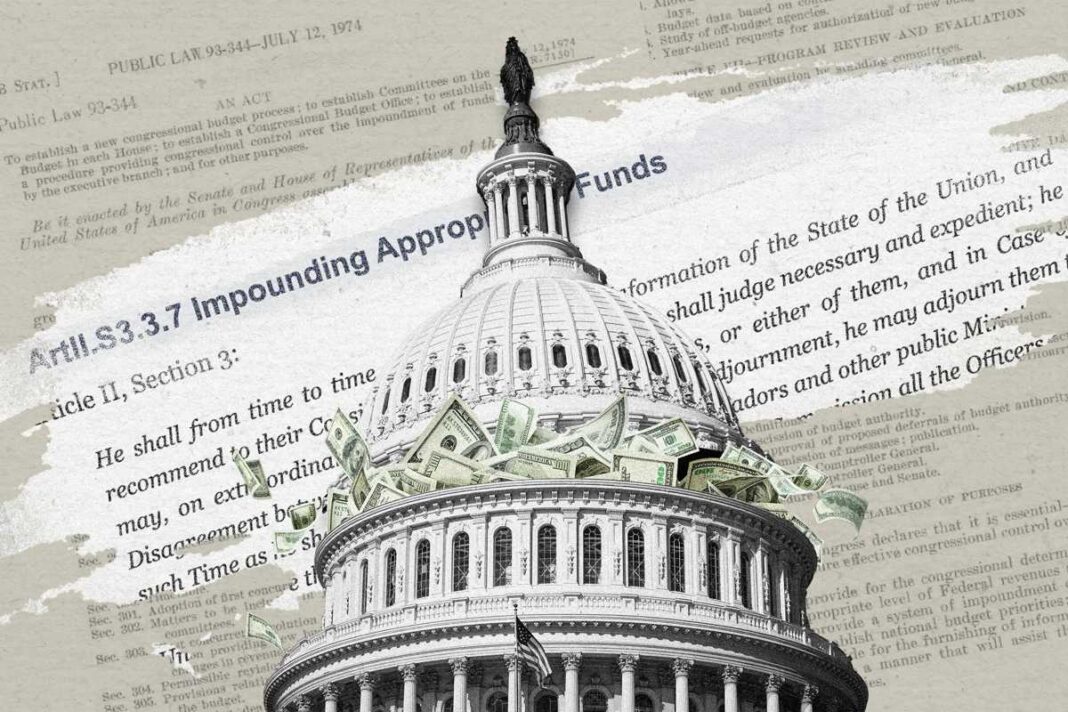
Trump will challenge the constitutionality of a 1974 law limiting the president’s power to withhold federal funds.
President-elect Donald Trump has said he intends to cut government spending by reasserting the presidential power of impoundment, a move certain to spark a court battle and one that could redefine presidential power for decades to come.
Impoundment occurs when the president chooses not to disburse funds authorized by Congress; instead leaving them unspent in the U.S. Treasury.
This power is not mentioned in the Constitution but has been employed by presidents since Thomas Jefferson. Congress enacted limits on the practice 50 years ago.
Now, Trump intends to challenge the Impoundment Control Act of 1974 (ICA), which he believes is unconstitutional.
“I will use the president’s long-recognized Impoundment Power to squeeze the bloated federal bureaucracy for massive savings,” Trump said when announcing his plan in June 2023.
Others say the ICA was needed to prevent the misuse of impoundment to alter congressional spending priorities, not merely eliminate waste.
Expanded use of impoundment power seems certain to be challenged in court.
Resolution is likely to hinge on two constitutional questions that define the balance of power between the executive and legislative branches of the federal government.
Jefferson appears to have been the first to use impoundment.
In 1803 he delayed purchasing gunboats to patrol the Mississippi River because they were no longer needed after the United States acquired the Louisiana Territory from France.
Since then, most presidents appear to have used the practice from time to time, and usually because the spending was no longer in the public interest.
President Ulysses S. Grant used impoundment to prevent federal funds from being used on river or harbor projects that would benefit private parties rather than the public.
President Franklin Roosevelt used it to limit spending on civilian construction projects to concentrate on wartime spending.
President Lyndon Johnson impounded some money to reduce inflation.
President Richard Nixon used the practice more frequently than previous executives, and his use of impoundment represented “a difference in kind, not simply in degree” from his predecessors, according to Joshua Chafetz a professor of law and politics at Georgetown University.
Nixon’s opponents argued that he was assuming the power to do away with certain government programs by simply starving them of funds, which violated the will of Congress.








